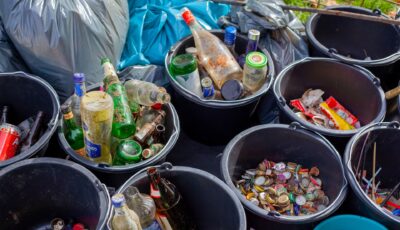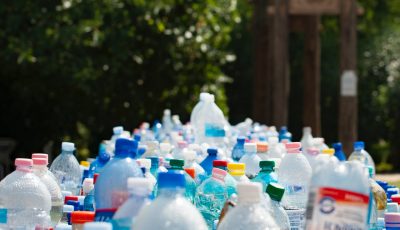Turning the Tide on Plastic Waste
Ontario is one of the few Canadian jurisdictions without a deposit return program for single-use plastic bottles. As a result, over 1 billion bottles are not recycled in Ontario each year.
TORONTO, April 27, 2016 – A new report is calling on Ontario to act to stop the proliferation of plastic pollution in the Great Lakes. The report released today, Turning the Plastic Tide: How to Protect the Great Lakes and Fight Plastic Pollution,recommends that the province introduce a deposit return on plastic bottles to dramatically increase recycling rates.
“Plastic pollution is a serious and growing problem in Ontario’s waterways. Studies have found more than six million bits of plastic per square kilometre in the Great Lakes. That’s equal to the amount found in the Great Pacific Garbage Patch,” said Natalija Fisher, Water Program Manager with Environmental Defence. “We need solutions to reduce the plastic pollution that is building up in our rivers and lakes.”
In jurisdictions with deposit return programs, between 72 to 95 per cent of the plastic bottles are recovered for recycling. But Ontario is one of two Canadian provinces without a deposit return on plastic bottles, and less than half of the plastic bottles sold in the province are recycled. The rest—an estimated one billion bottles each year—end up in the landfill or the environment.
According to the report’s findings, a deposit return program for single-use plastic bottles would not only reduce plastic pollution, but could also help the province raise much-needed funds to protect and restore the Great Lakes. Water programs in Ontario are woefully underfunded. Currently, Ontario’s budget for Great Lakes protection is just $15 million a year.
“We know that deposit return systems work—Ontario already has a successful deposit return program for wine and beer bottles. Other provinces, like New Brunswick, have plastic bottle deposit return programs that are helping to raise funds for environmental initiatives,” said Fisher. “We can do the same in Ontario.”
The province could also raise more money to protect freshwater by increasing the fee for commercial water users, such as water bottling companies, to pump water from the province’s aquifers, rivers, and lakes. Currently, these companies pay only $3.71 per million litres, leaving Ontario’s water quantity programs underfunded.
“It’s time for water bottling companies to pay more for the water they take,” said Fisher.
Ontarians are also invited to make a pledge to use a refillable water bottle to reduce the amount of plastic waste they produce. Using a refillable water bottle is a simple step people can do to help protect the province’s waterways.







